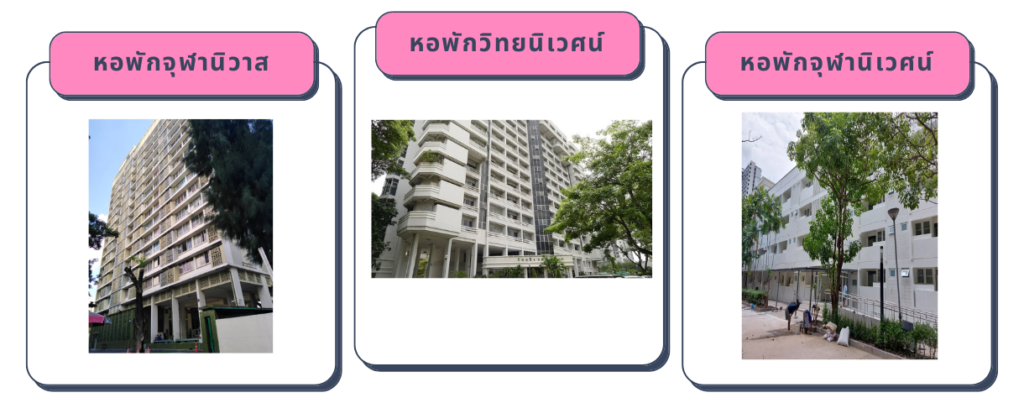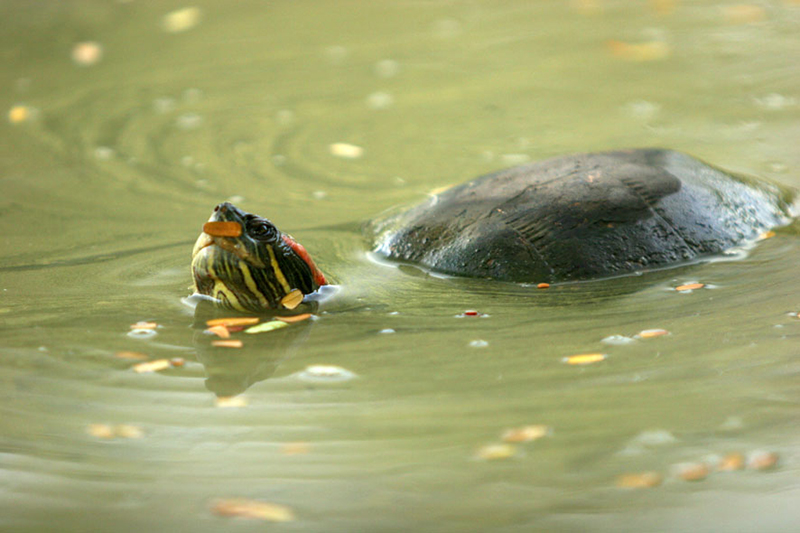Staff Accommodation Service to Promote A Better Quality of Life Mission
As human resources are crucial to move forward together in the next decade, Chulalongkorn University has implemented a policy to provide accommodation for staff and personnel to facilitate working conveniently and efficiently, as well as to help with commuting to work for personnel who do not have accommodation in Bangkok or those with difficulties with commuting to work. This is another benefit that has been added, along with welfare, finance for children’s education and a better quality of life for personnel health.
The aforementioned policies are to reduce costs of living, inequality and to build a sustainable city and community. The university therefore provides 3 dormitories for personnel (Providing housing directly) consisting of “Vidhayanives Domitory”, “Chulanivas dormitory” and “Chulanives dormitory” which all have different occupancy requirements.
Staff dormitory
“Vidhayanives Dormitory” is a 14-storey building with air-conditioned rooms plus other facilities. Applicable guests must be qualified as either a government official, a permanent employee equivalent to P8 level or higher, or a university employee at P8 level or higher (subsidy category, income category), excluding enterprise employees and extraordinary staff along with other practices appearing in the announcement of Chulalongkorn University regarding the management of personnel dormitories, 2021. There are various forms to support all family stays, private stay or long stay and daily stay at an affordable price
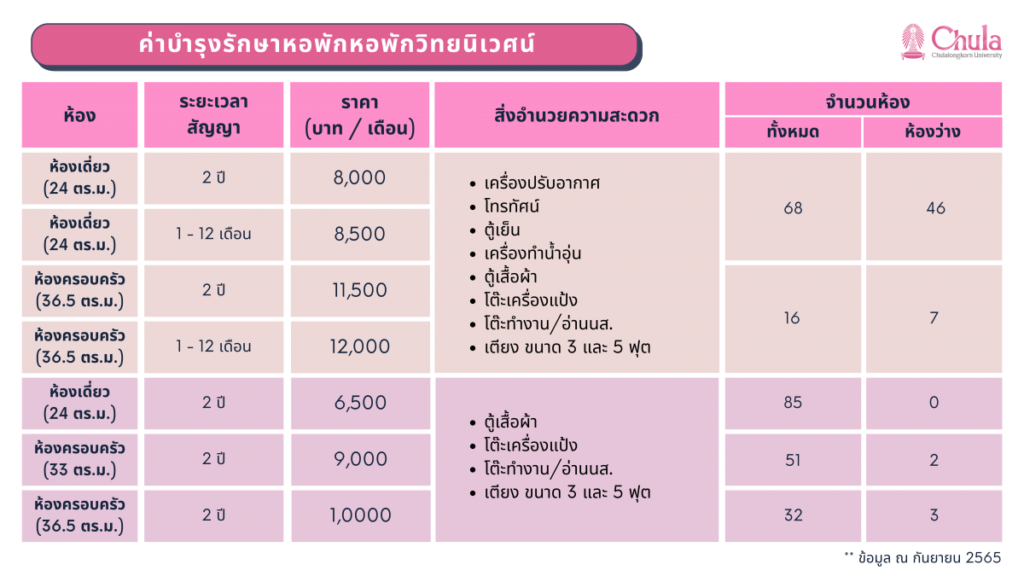
“Chulanivas Dormitory” is a 15-storey building. It is a dormitory for staff, workers, security guards (security guards), janitors and mechanics for the convenience and speedy performance of duties, including property and security services. Rooms are divided into sharing rooms for 4 people and family rooms for maximum 6 people, with a 2-year contract period and a monthly maintenance fee at a reasonable price. In addition, activities with interactions are encouraged, such as aerobic dance activities (the Elegant Chula Community Project) and an election for a working group to coordinating on activities for the Chulanivas dormitory, etc.
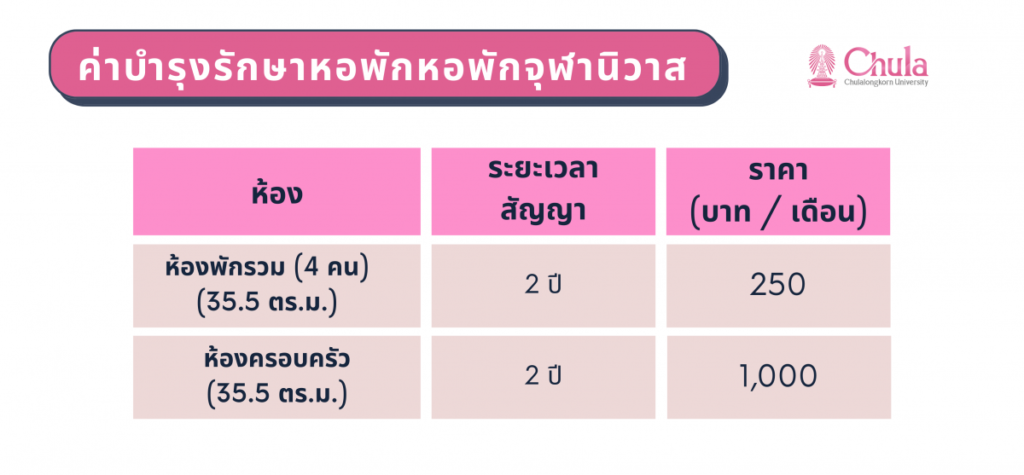
“Chulanives Dormitory“ (currently under renovation) was originally a 4-storey building and was a dormitory for government officials and university staff. There were fan-type rooms with amenities. They have both large for family stay and small rooms for private stay.
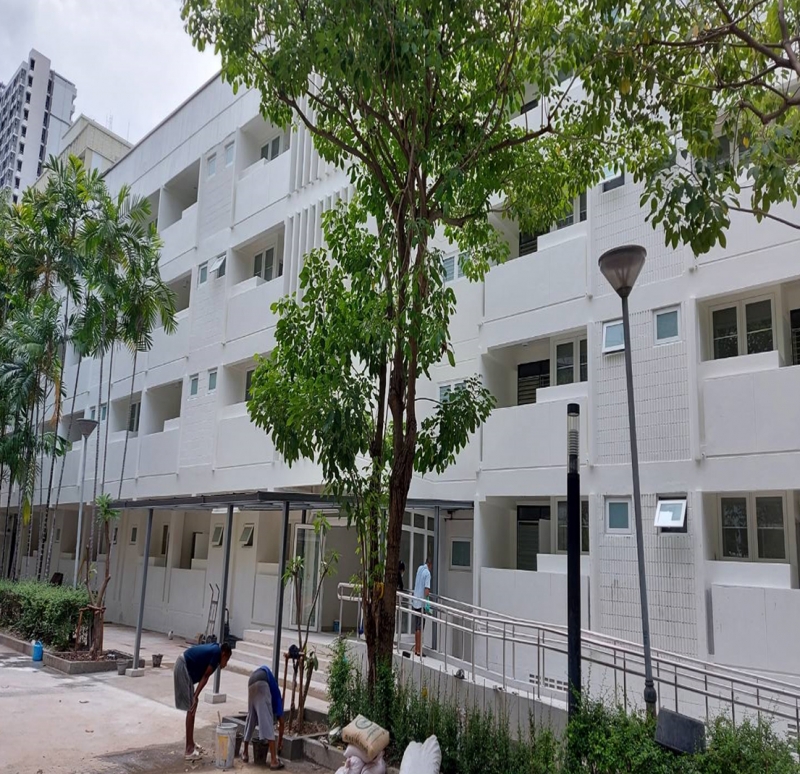
To request to stay at staff dormitories, the university also assesses if individual personnel can afford accommodation with the condition of staff qualifications and necessity reasons of personnel. Prioritization of personnel applying to stay in university dormitories also take into account the necessity of work. The departments that must stay in the dormitory is an important criterion to consider carefully for those who are staying and those who wish to enter the new residence.
In addition, as Chulalongkorn is a large university with more than 7,000 staff, it has a policy to support their personnel to find housing at a suitable price for the cost of living in the Chula location in other schemes as well, for example,
Providing renumeration for expenses and monthly accommodation to foreign personnel (Providing financial support) as can be seen from Chulalongkorn University Announcement on Rates of Special Remuneration and Additional Benefits For foreign academic university employees B.E. 2565. This is to support the employment of foreign academic to move forward the university and promote internationalization to keep up with the world today.
The university’s housing loan (Housing loan) is a loan welfare for university personnel housing with a fixed low interest rate. Thus, personnel will be able to use this money for building construction, buy land with buildings or condominiums or to replace the original dilapidated building, to pay off the mortgage of land with buildings or condominiums and to renovate or repair one of their own first residences.
BY
Office of Human Resources Management, Chulalongkorn University
Related articles:
- https://www.hrm.chula.ac.th/newhrm/%e0%b8%ab%e0%b8%ad%e0%b8%9e%e0%b8%b1%e0%b8%81%e0%b8%9a%e0%b8%b8%e0%b8%84%e0%b8%a5%e0%b8%b2%e0%b8%81%e0%b8%a3-2/
- https://www.hrm.chula.ac.th/newhrm/%e0%b9%80%e0%b8%87%e0%b8%b4%e0%b8%99%e0%b8%81%e0%b8%b9%e0%b9%89%e0%b9%80%e0%b8%9e%e0%b8%b7%e0%b9%88%e0%b8%ad%e0%b9%80%e0%b8%84%e0%b8%ab%e0%b8%b0%e0%b8%aa%e0%b8%87%e0%b9%80%e0%b8%84%e0%b8%a3%e0%b8%b2/
Others
Say No to Plastic Bottled Water
Campus vending machines make safe drinking water available free to everyone
Committed to Biodiversity
Surveys and other activities raise awareness of rich variety of vertebrate life in campus area

